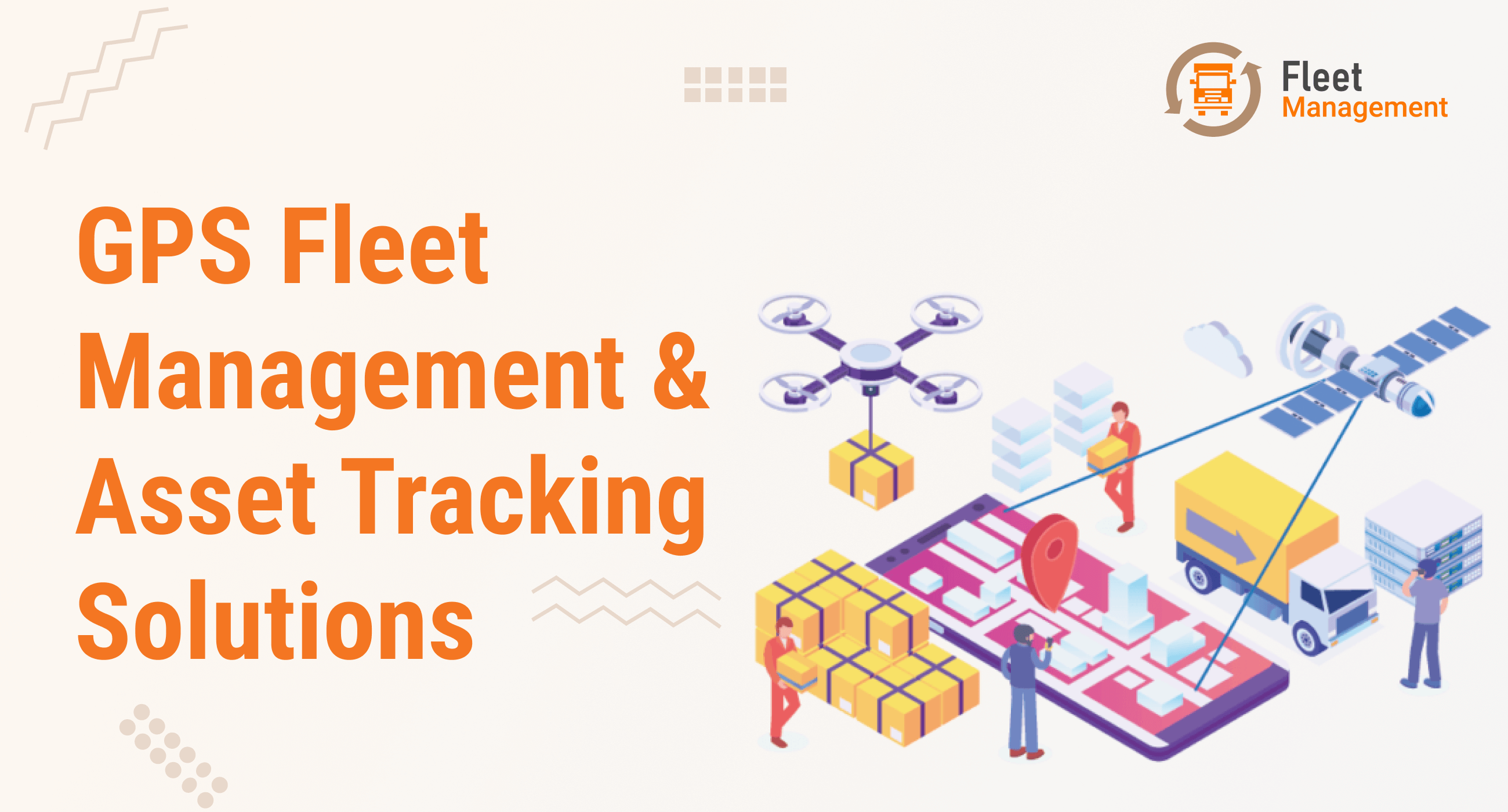Our Blogs
 Fleet Management()
Fleet Management() Car Rental Software()
Car Rental Software() Fleet Drivers()
Fleet Drivers() Infographics(0)
Infographics(0) News(0)
News(0)
Service We Offer
Follow Us
Importance of Predictive Analysis in Fleet Management
Predictive analysis is the key to success for many businesses including a growing fleet management business. In today’s highly competitive business world, predictive analysis helps one to be prepared and analyze what may happen and thus be proactive rather than being laid back and deciding what to do after an event has occurred. Being a powerful decision-making tool, the importance of predictive analysis in fleet management includes improvement of efficiency and safety of vehicle conditions and driver behaviour.
Predictive analysis is data-driven. Data is collected from all the sensors placed in the vehicle, traffic footages, GPS, cameras installed in the vehicle, and the software used to maintain the vehicle. Based on these data, conclusions are drawn and predictions are made for the future.
The most common problem faced by fleets today is safety. Millions of collisions happen every day on the road and managers have to take proactive steps in helping to prevent these accidents. But how can they do it when they are not the ones on the road with the vehicles?
Read Also: 31 Tips To Hire Best Drivers For Your Fleet
This is where predictive analysis comes into the picture. The data collected from various sources can give managers an insight into the causes of these accidents and help them find solutions to prevent these accidents. Most accidents occur due to the distracted driving behaviour of the drivers behind the wheel at that point in time.
Most of the employees of fleet management businesses work long hours. When drivers are on the road for too long they tend to get drowsy. Driving while they are drowsy can lead to dangerous collisions. Distracted driving behaviour can also lead to accidents.
When vehicles get into accidents, especially trucks and containers, not only are the lives of the people involved in the accident threatened but also of the people present in that area during that time. Many lives are at risk in an accident.

Fleet management includes not only tracking of the vehicles but also vehicle maintenance, improvement of brand reputation, driver risk management and most importantly, improvement of efficiency and productivity thus reducing costs and so improving profits.
Importance of Predictive Analysis in Fleet Management
Data is the driving force behind all business decisions today. Managers need to analyse all the data available to them on their business thus making informed decisions to get the best output. This is also the key to getting ahead of the competition in the industry.
Predictive analysis in fleet management based on the data available helps managers to take action even before a problem occurs helping them always be a step ahead of others.
Data can be taken from the telematics software installed in the vehicles, cameras in and around the vehicle, traffic cameras, sensors in the vehicle and other sources. Most fleet managers have the technology at their disposal. The importance lies in knowing how to use these technologies.
Having a pile of data and not knowing what to do with it or how to make the best use of it is the major drawback most businesses face.
Businesses with big fleets have a lot of data at their disposal all the time. They monitor the performance of their vehicle in real-time and they get live data based on even the tiniest details of their vehicles. Managers have to know which of these data they have to use at what times. With all these data, managers can identify trends and patterns that occur and problems that may arise.

Predicting the problems that may occur helps them save money, time, and reputation. Even one major accident that occurs can lead to wastage of a lot of money in the form of repairs, increased insurance premiums, compensations to the injured, legal expenses, compensation for loss of goods, and also loss of customers due to the injury to their brand reputation.
The key areas where predictive analysis comes into the picture in fleet management are:
- Predictive maintenance of vehicles
- Driving risk management
- Cost control
- Fleet productivity
1. Predictive maintenance of vehicles
Predictive analysis is useful in monitoring the health of your vehicles and seeing when maintenance is required. The various sensors placed in the vehicle can help you identify how they are working and see if there is any deterioration in the performance of any of its parts. Engine health is monitored constantly so that any small requirement can be fulfilled quickly.
Read Also: 31 Ways to Reduce Fleet Maintenance Costs
Scheduling regular service of the vehicles can help improve its functioning and increase its lifespan. It also reduces the risk of an unexpected breakdown of the vehicle or failure of any of its parts.
This can also help the managers identify when a specific vehicle has to be removed or replaced with a new one in the fleet.
2. Driving risk management / Prevention of accident
As previously mentioned, distracted driving is the main cause of accidents on the road. Drivers may drink and drive or they might be tired or drowsy when driving. It is the job of the managers to make sure that this does not happen.
Telematics systems in the vehicles give managers data about driving patterns of each driver. Data about harsh braking or acceleration and risky driving on the roads is available and based on that, the driving record of each driver can be maintained and they can be provided customized training in their weak areas.

Data about accidents are also available to managers. When analyzing this data, you can identify certain patterns as to why these accidents occur and how they can be prevented. By taking this job into your hands, you ensure not only the safety of your driver but also the safety of the other drivers on the road, the pedestrians and also of the cargo.
3. Cost control
When running a business, it is difficult to predict all your expenses. You may have a specific budget and a view of where all costs will be incurred. But it is not always fixed and in one way or the other, some unexpected expenses will find you.
When running a fleet, you will always encounter unexpected costs. It may be in the form of repair of damages to the vehicle or increased insurance premium after an accident. The best way to not lose a lot of money is to be prepared to face any problem that may arise or prevent the problem from arising with the help of predictive analysis.
Cost-cutting and profit maximization is the main motive for managers and predictive analysis can help you to cut costs by a large margin.
4. Fleet Productivity
No fleet will make it in the long run unless it performs its functions well and makes deliveries on time and in good condition. Customer satisfaction is the key to success. As long as your customers are satisfied, they will remain loyal to your business and that will help your business prosper.
With the help of predictive analysis, data is compiled and evaluated to find out the best course of action in each situation. When the vehicles are in perfect condition and when drivers are also in their best forms, the efficiency of the fleet will improve.
According to the condition of each vehicle, jobs can be planned and done efficiently. Schedules can be maintained properly, deliveries can be made on time and customer satisfaction can be maintained.

For example, you predict that a truck that you had assigned for a specific job in the future requires maintenance work now. If the truck is taken for maintenance now, it will be in its best condition to perform the job in the future or you can assign another truck for that job. It prevents the case of the job not being done due to lack of maintenance.
Predictive analysis is a very powerful decision-making tool. When decisions are made based on data already available to them, it becomes more effective as there are chances of the same situations occurring again. Being proactive and taking measures against your predictions that are based on data will help you stay ahead of the competition and make your way to success.
Data about thousands of tiny details of the fleet is available from various sources. Not all these details are necessary and so you have to identify the required data, compile it, analyze it and come to a conclusion. You have to identify the challenges you may face first before collecting the data on it and analyzing them.
Fleet management is not an easy task. With many vehicles under your command, you have to make sure that deliveries are made on time, the drivers are carefully doing their job while abiding by all the regulations and that there are no illegal actions done by your employees that may affect your business in a bad way.
Read Also: Top 5 Tips to Increase Efficiency of Your Fleet
Predictive analysis can help you in handling all these cases because you are prepared to face whatever may happen.

Predictive analysis is one of the latest trends in the fleet management industry and intelligent managers are realizing its value. Knowing what is about to happen beforehand can help you take measures and be prepared for whatever is about to come.
In today’s competitive world, managers have to be updated with all the latest technologies and be aware of what is happening around them for their business to survive.
This is where the importance of predictive analysis in fleet management comes in. It can help you in preventing accidents and risky behaviour of drivers, predicting maintenance of vehicles, controlling costs that are incurred and improving efficiency and productivity.








